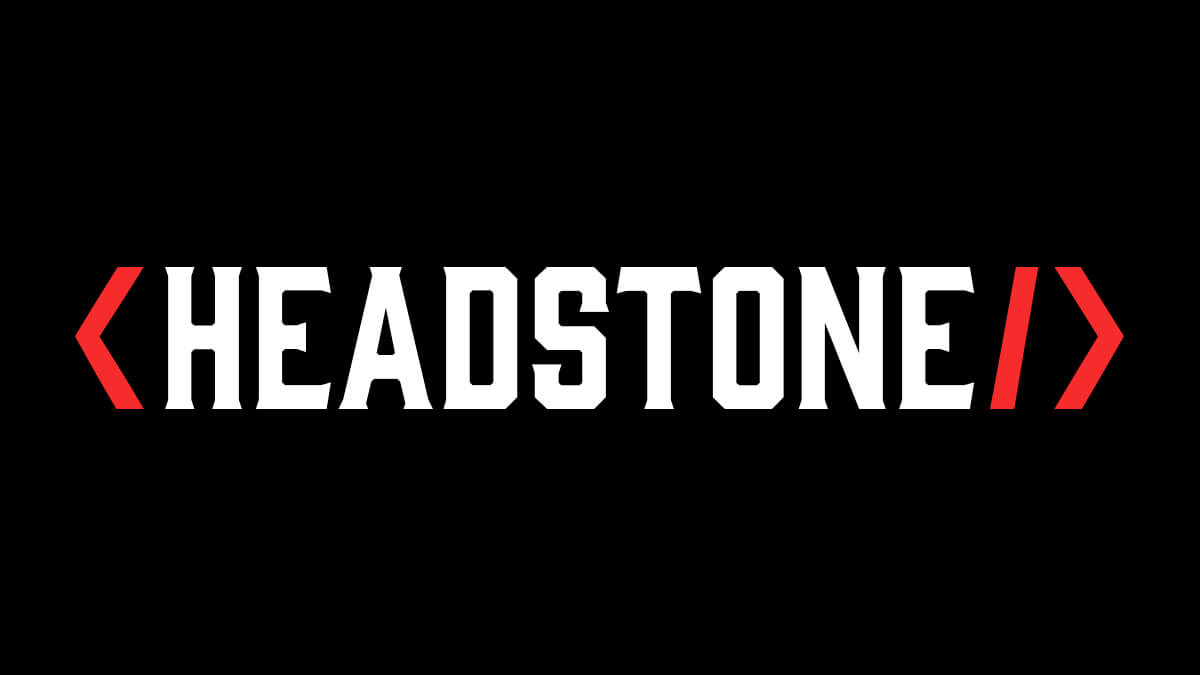WP Rocket Alternative: Meet Headless Hostman
WP Rocket Alternative That’s Actually Better: Meet Headless Hostman
WP Rocket is good. But it’s just not enough anymore. It’s built on the idea that caching alone can fix your performance woes. But modern sites need more than that. They need a fundamentally better approach.
That’s where Headless Hostman steps in. A true WP Rocket alternative that doesn’t just optimize — it redefines how WordPress performance should work.
Why Look for a WP Rocket Alternative?
WP Rocket is a caching plugin first, and a performance plugin second.
That’s not a knock. That’s just the truth. Its job is to serve dynamically cached pages faster. But it’s still WordPress under the hood. Still dependent on themes, plugins, and MySQL queries that slow everything down. You’re layering speed on top of slowness. It works, but it’s not the game-changer most people are looking for.
Here’s the biggest issue:
⚠️ WP Rocket’s optimizations only apply after the page is cached. Which means changes are delayed, inconsistent, or flat-out broken during staging and testing.
In contrast, Headless Hostman optimizes your site the moment it’s converted to static — skipping the slow caching cycle altogether.
Headless Hostman: A Faster, Static WP Rocket Alternative
What makes Headless Hostman a true alternative — and in most cases, an upgrade — is that we offer all the same features WP Rocket does, but on a static-first architecture.
What Is Static WordPress?
Static WordPress is a version of your site that embeds images and files directly onto flattened pages.
These pre-rendered pages are totally separated from database servers. The combination creates a faster, more secure, and far more resilient website.
What is Headless Hostman?
Headless Hostman takes the best of both traditional WordPress and countless Static solutions to create a site that is easy to manage, fast, and secure.
Take your existing WordPress website, convert it to Static, and host it on Cloudflare.
- Your site loads instantly from a CDN
- No PHP, no database, no server-side slowdown
- No caching plugins needed at all
- Performance tweaks are applied at build time, not runtime
Faster Websites from the Source First
Google PageSpeed tells you in part how fast a site’s response from the root is. But it’s mostly about nitpicking your HTML.
Time to First Byte is a metric to actualize how fast a site perceivably loads.
Because of our Static WordPress infrastructure, we deliver faster response times.
Our average TTFB is <180ms as compared to:
- WP Engine’s TTFB: ~490ms
- Kinsta’s TTFB: ~504ms
- GoDaddy’s TTFB: ~550ms
- Hostinger’s TTFB: ~600ms
- Cloudway’s TTFB: ~625ms
Built for Static WordPress Performance (Not Just Caching)

WP Rocket is built for dynamic WordPress.
Headless Hostman is built for static WordPress.
Plugins like WP Rocket or Perfmatters rely on runtime caching.
They clear their cache, rebuild, and hope for the best. That introduces lag, inconsistencies, and edge case failures, especially if you’re using static site generators or third-party hosts.
With Headless Hostman:
We do all of our Performance optimizations during WordPress to Static Conversion.
Since we’re already converting your pages to flat HTML, we might as well.
- They happen in real-time
- They’re more consistently applied – since we don’t wait on background jobs
CSS Optimization: Critical CSS, Defer Styles, and Gutenberg Cleanup
Generate Critical CSS
Headless Hostman automatically extracts the CSS required to render above-the-fold content on each page. That CSS is injected inline so your page starts painting immediately.
- Faster First Contentful Paint (FCP)
- Lower Largest Contentful Paint (LCP)
- No need to wait on stylesheets
Note: Some themes or page builders already include critical CSS. Avoid stacking multiple versions.
Defer Stylesheets
Once the above-the-fold content is rendered, other stylesheets load in the background — improving visual load time without layout jank.
Pro Tip: Always use this with Critical CSS to avoid CLS (cumulative layout shift).
Gutenberg Block Cleanup
If you’re not using Gutenberg, why load its scripts?
Headless Hostman automatically removes Gutenberg styles and JS from your pages, even if your theme doesn’t.
Smarter Image Optimization
Lazy Load Images with Scroll Thresholds
Images below the fold are lazy loaded just before they enter view — reducing initial load size while keeping scroll smooth.
You can choose between:
- Default Threshold
- Faster Preload
- Fastest Preload
Preload Above-the-Fold Images
Images that appear immediately when the page loads are auto-detected and added as <link rel="preload"> in the <head>.
This ensures:
- Instant visual feedback
- Higher LCP scores
- Zero scroll delay
Add Image Dimensions Automatically
We scan all <img> tags and inject width and height values to prevent layout shift and improve rendering stability.
Experimental Features for Background Images
Background images can’t be preloaded — but we offer smart options:
- Convert background images to
<img>tags - Load background images on first user interaction
These features are experimental — test them thoroughly.
JavaScript and HTML Optimization
Defer Scripts Until First Interaction
This powerful feature prevents render-blocking by holding off script execution until the user clicks, scrolls, taps, or moves the mouse.
Great for reducing:
- Time to Interactive (TTI)
- Blocking time
- Script-induced jank
Lazy Load Iframes
Iframes for YouTube, Google Maps, etc., are slow by default. Hostman lazy-loads them unless they appear above the fold — with adjustable thresholds.
Defer Below-the-Fold Content
This optional tool uses visibility: hidden to delay loading lower sections of your page. Doesn’t affect SEO, but may improve real-world responsiveness.
Minify HTML
Minifies and compresses your HTML output for smaller file sizes and faster parsing.
Not always dramatic — but every bit helps.
Troubleshooting Tools That Don’t Suck
Troubleshooting Stylesheets
If something breaks when deferring styles, simply paste the URL of the stylesheet into our exclusion list.
Troubleshooting Scripts
We’ve curated a smart exclusion library of known problematic JavaScript files — auto-skipping them for you when defer is turned on.
Built-In Static Test Tool
Not sure if your changes are safe? Use the “Test as Static” feature to preview any page before pushing live.
This is something WP Rocket simply can’t do — because it’s not built for static conversion.
Should I Use WP Rocket or Perfmatters Too?
You can try — but trust us when we say:
They’re caching plugins first, performance plugins second.
In a static-first environment, WP Rocket can actually conflict with the optimizations Headless Hostman already handles automatically.
More than that, we notice the optimizations are applied very sporadically which is the biggest reason we took speed performance in-house.
PageSpeed, Core Web Vitals, and What Actually Matters
Here’s the part nobody tells you: chasing perfect scores in Lighthouse or PageSpeed Insights isn’t the goal — delivering fast, reliable experiences to real users is.
With WP Rocket, your PageSpeed scores might go up. But the way it applies optimizations — after caching, inconsistently across dynamic pages — means what Google measures isn’t always what users see.
Headless Hostman guarantees consistency.
- Critical CSS? Always included.
- Lazy loading? Always applied the same way.
- No PHP. No database lag. No plugin roulette.
Every single page is optimized and deployed exactly as you expect. One version. One output. No variations.
Security: Static Is the Ultimate Lockdown
One of the most overlooked aspects of performance is security. The more plugins you run — especially caching and optimization plugins — the more you expand your site’s attack surface.
WP Rocket has been audited, sure, but it still runs inside your dynamic WordPress site. Which means your database, login system, and backend code are still exposed.
Headless Hostman publishes your WordPress as a flat, static site. Nothing to hack. Nothing to inject. No attack vectors. Just fast HTML served from global CDN nodes.
- No plugins executed client-side
- No PHP to exploit
- No admin URLs exposed to bots
Security and performance go hand in hand. And static wins on both fronts.
Workflow That Fits How You Actually Build Sites
One thing most developers don’t love about WP Rocket? It often forces you to adjust your workflow just to play nice with its caching cycle.
- Make a change
- Clear the cache
- Hope the minification didn’t break anything
- Test the live version again
With Headless Hostman, everything is applied on publish:
- You design in WordPress like normal
- Preview in staging with zero optimization interference
- Push to static and get instant performance
No plugin conflicts. No broken scripts. No hoping WP Rocket doesn’t mangle your CSS layout. Just a reliable, repeatable flow that works every time.
Fewer Plugins, Fewer Problems
Let’s face it: plugins are great — until they aren’t.
Every extra plugin means:
- Another update to manage
- Another support email when things break
- Another layer of logic that might conflict with your theme
WP Rocket works hard to be compatible with the thousands of plugins out there. But that’s part of the problem. It has to work around things instead of replacing them.
Headless Hostman replaces the need for 10+ optimization plugins with one static build step.
No minification plugins. No image lazy loaders. No Gutenberg unloaders. No deferred JavaScript helpers. All of it’s built-in — and done right.
Full Feature List: What You Get with Headless Hostman
Here’s a breakdown of what Headless Hostman handles — all without plugins:
- Critical CSS Generation for above-the-fold rendering
- Stylesheet Deferral with safe exclusions
- Automatic Lazy Load for below-the-fold images
- Image Preloading for visual-first experiences
- Width/Height Attribute Injection for layout stability
- Gutenberg Script Removal if unused
- JavaScript Defer until first interaction
- Iframe Lazy Loading with customizable thresholds
- Below-the-Fold Content Deferral for fast perception
- Minified HTML without external tools
- Script and Stylesheet Exclusion Rules with safe lists
- Safe Testing Tool before publishing static pages
All of these are integrated. No Frankenstein setup. No code editing required. Just enable what you need, test with one click, and go live.
Stop Patching Performance. Replace It.
We built Headless Hostman because performance plugins are just that — patches.
They don’t fix the root problem. They layer fixes over it.
Static solves the problem at the core.
Instead of speeding up a slow dynamic site, you’re building a fast site by default — and then making it even faster with built-in tools designed for speed-first delivery.
If you’ve tried WP Rocket, Perfmatters, Autoptimize, AsyncJS, Lazy Load, and half a dozen other plugins and still feel like your site should be faster — you’re probably right.
You don’t need another plugin.
You need a new approach.
Conclusion: The WP Rocket Alternative You’ve Actually Been Looking For
If you’re tired of caching plugins that only work half the time… tired of breaking pages every time you enable a new toggle… tired of chasing performance through layers of plugins and hacks —
Then it’s time to make the switch.
Headless Hostman isn’t a WP Rocket replacement. It’s a whole new way to do WordPress.
Try it once. You’ll never want to go back.
Deeper into the Abyss


